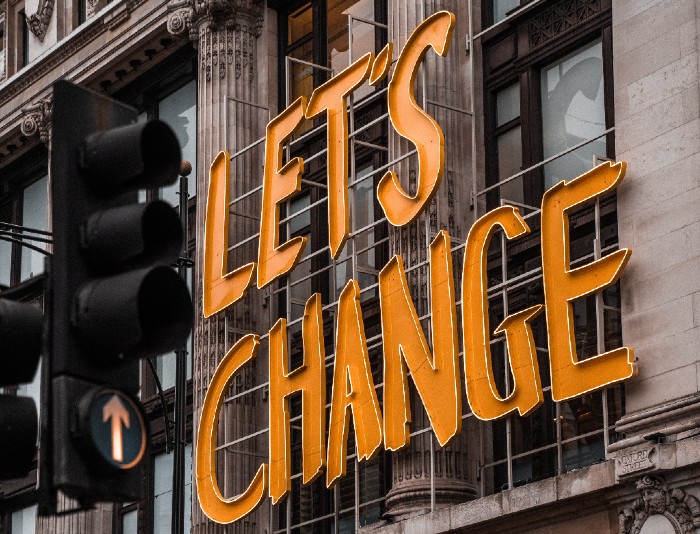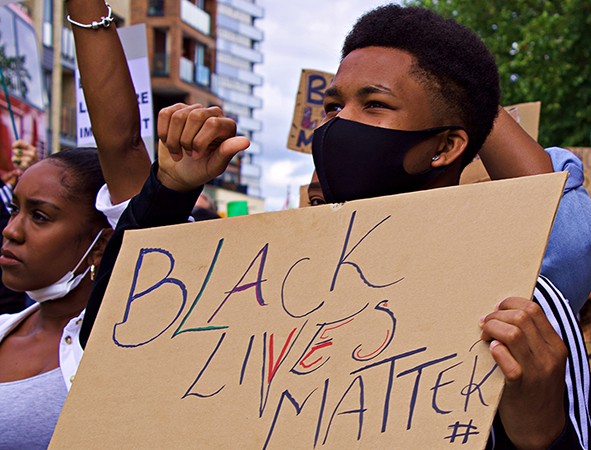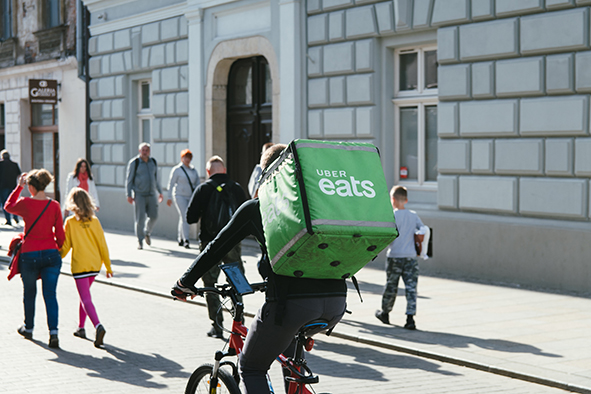Next in our four-part series unpacking opportunities for change for coffee businesses post-pandemic, 5THWAVE explores the increased focus on quality of life and human values, and the new opportunities in home coffee, e-commerce and coffee equipment. Catch up on parts one and two here.

Grounds for Optimism: Why recent events around the world should inspire positive change in the coffee industry
Quality of life and human values
The pandemic may have spread like wildfire across the world, but so too has the imperative to promote social justice, equality and better quality of life. As a direct consequence of international human rights campaigns, such as Black Lives Matter and the Me Too movement, governments and businesses of all sizes have embarked on reflection and reform.
The gender pay gap, racial equality and work-life balance have all maintained prominence during the pandemic. After Covid-19, there is now the opportunity for hospitality businesses to accelerate action on these issues as they rebuild to promote the quality of life for all stakeholders.
"Coffee businesses sorely need transparency, equity, and a commitment to education"
– Veronica P. Grimm, Founder, Glitter Cat Barista
Veronica P. Grimm is a Founder at Glitter Cat Barista, a non-profit providing support, training, access to resources, and mentorship for marginalised hospitality professionals in the US. She identifies measures that coffee shops and workplaces can implement to foster a culture of equality and inclusivity.
“Coffee businesses sorely need transparency, equity, and a commitment to education. Without wage transparency and set expectations, marginalised hourly coffee workers are often left behind with no explanation,” she says.
Grimm also urges governments to legislate in order to protect and enhance the rights of under-represented workers. “We need legislation that directly addresses wage transparency. The way we talk – or mostly don’t – about money in the US is what upholds wage discrimination. By painting wage discussions as being in poor taste, underpaid marginalised workers are kept from exposing an all-too-common truth: they are paid less than their cis-hetero white neuro-typical non-disabled male counterparts.”
In the US, President Biden has launched the ambitious ‘Build Back Better’ plan, with The Small Business Opportunity Plan seeking to address the wealth, opportunity, and jobs gap for people of colour. Around 10% of the $3bn fund will be devoted to leveraging black and minority-owned small businesses in the US, with the initiative seeking to catalyse more than $50bn new equity investment and venture capital for entrepreneurs in Economically Disadvantaged Areas.

The Black Lives Matter movement garnered much attention in 2020 and encouraged governments and businesses of all sizes to embark on reflection and reform
The need for diversity and equality in the workplace is not just a human imperative – it also makes savvy business sense. Research from the American Sociological Association shows higher levels of ethnic diversity increase revenues by around 15%. The scientific body also found that for every 1% increase in gender diversity, company revenue increases by 3%.
During the Covid-19 era, the sentiment that ‘we are all in this together’ has frequently been repeated. Today, this way of thinking encapsulates a new consumer psyche that can benefit both businesses and communities as societies emerge from the pandemic.
New business models
Covid-19 trading restrictions and the rise of home working have generated seismic shifts in the way coffee businesses operate. The last 12 months has seen coffee shops rapidly roll out new business models and strategies to adapt to new trading realities.
“We’ve had an entire year where the food and beverage industry has been decimated by Covid-19, but coffee shops have shown remarkable resilience,” says Rabobank’s James Watson.
Indicating the commercial potential of delivery during the pandemic, 45% of US consumers surveyed by World Coffee Portal say they would regularly order beverages for delivery if the option were available. In South Korea, the delivery revolution is already well underway, with 3,000-strong coffee chain Ediya Coffee reporting a 612% annual increase in deliveries in 2020.
The pandemic has also led to a boom in high quality at-home coffee consumption. Coffee businesses, especially roasters, mulling opportunities in the at-home coffee market need look no further than some of the world’s largest companies for inspiration.
In 2020, Keurig Dr Pepper (KDP) saw net sales increase 4.5% to $11.62bn amid strong demand for retail packaged coffee and soft beverages. Meanwhile, Nestlé generated more than $3bn from Nescafé and Starbucks-branded products in 2020. Home coffee appliance manufacturer De Longhi saw net revenues rise 12.4% to €2,37bn ($2.83bn).
"The food and beverage industry has been decimated by Covid-19, but coffee shops have shown remarkable resilience"
– James Watson, Senior Beverage Analyst, Rabobank
Boutique specialty coffee roasters have also seen direct-to-consumer home coffee sales volumes go through the roof, achieving to the same level of pre-Covid wholesale revenues – but at far more attractive margins.
“Five years ago, growth for a small coffee shop would have been mostly through store numbers. Now, growth-minded businesses may expect up to more than half of their sales to come from e-commerce and at-home coffee sales. In the US, that’s a stark reversal of a many decades-long trend towards drinking coffee out-of-home,” Watson says.

New business models and partnerships have helped coffee shops adapt to the new trading realities during the pandemic
US and UK consumers surveyed by World Coffee Portal in 2020 indicated a strong desire to return to their favourite coffee shops when trading restrictions are lifted. Nevertheless, technology is significantly broadening the scope of interactions customers can have with their favourite café.
As coffee shops reopen, customers can expect a brave new world of digital transactions – from online coffee subscriptions to just-in-time ordering – designed to enhance, not supersede, the café experience. Using these new found digital tools, coffee shops and hospitality venues will continue to a play vital role at the heart of local communities.
The final part of Grounds for Optimism will explore the global implications of the US' recommitment to international cooperation on climate and trade.
This article was first published as part of a feature analysis in Issue 6 of 5THWAVE magazine.
Subscribe to 5THWAVE to receive each edition in print and digitally or sign up to our newsletter and be the first to read the latest articles and updates on World Coffee Portal research
.png.aspx?width=700&height=219)